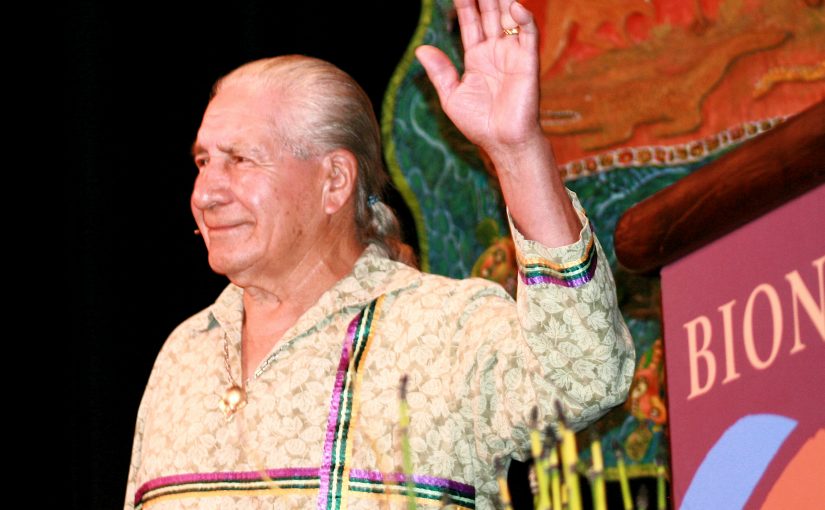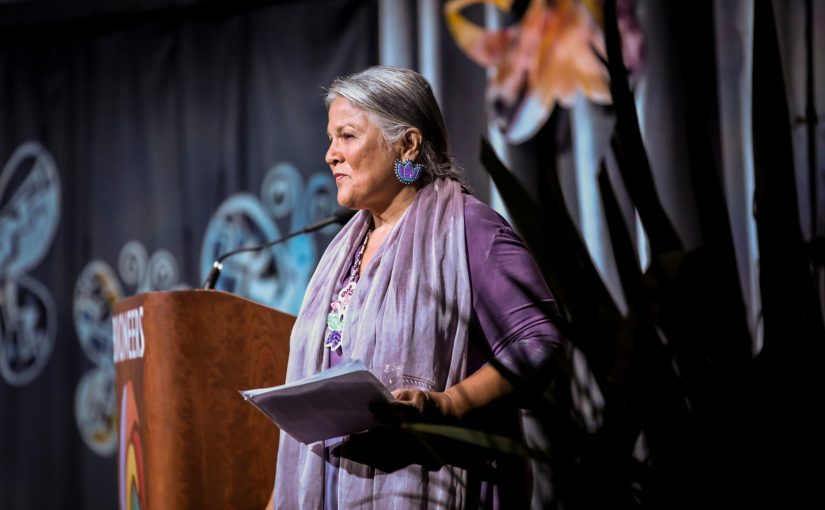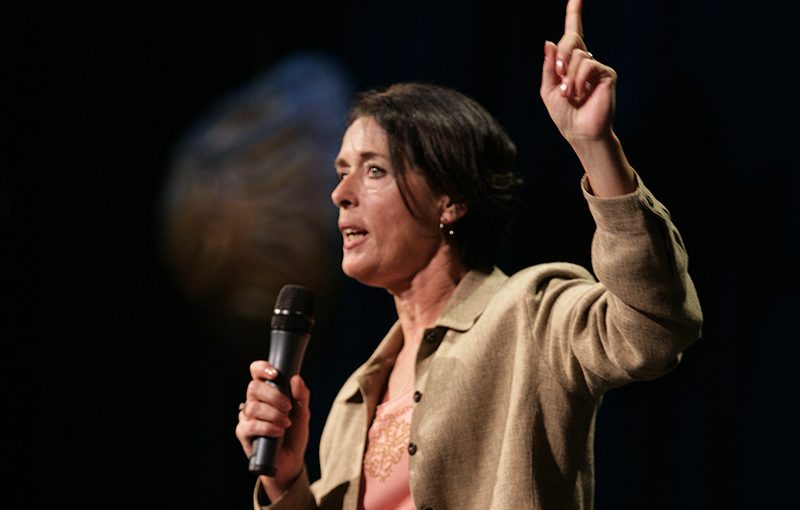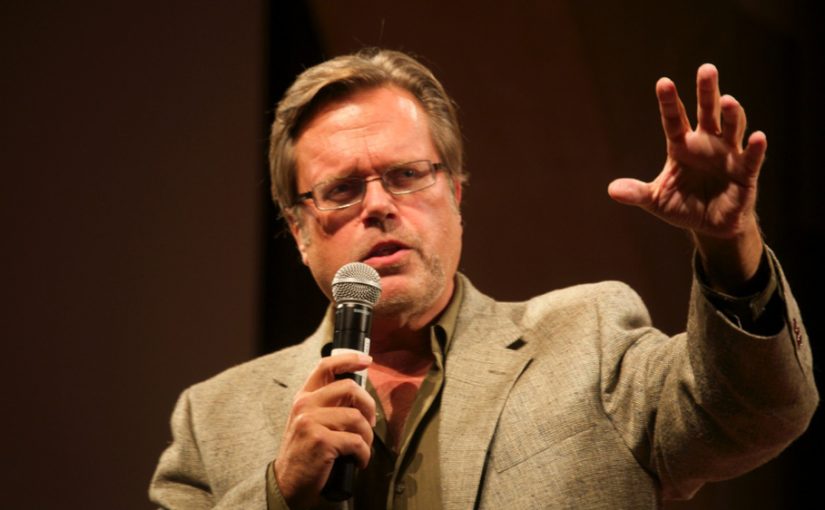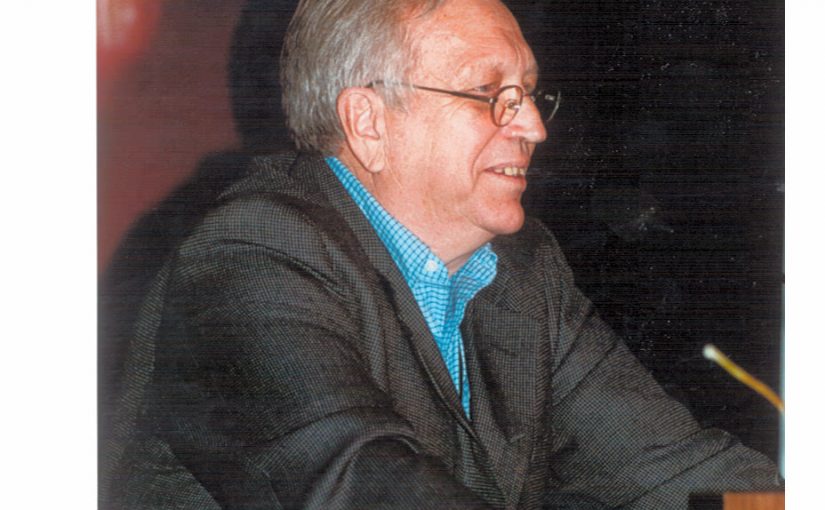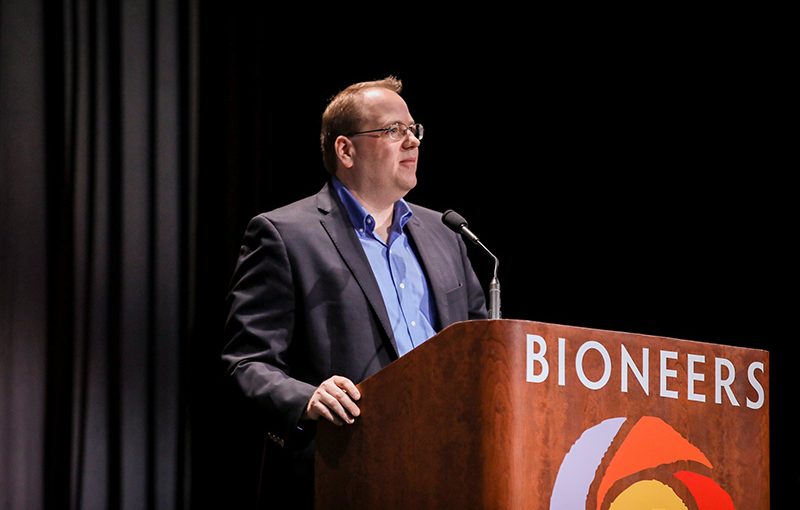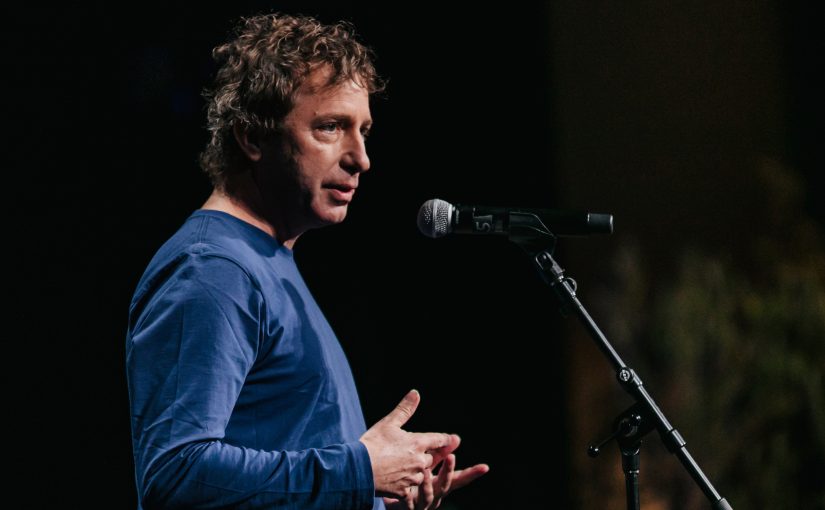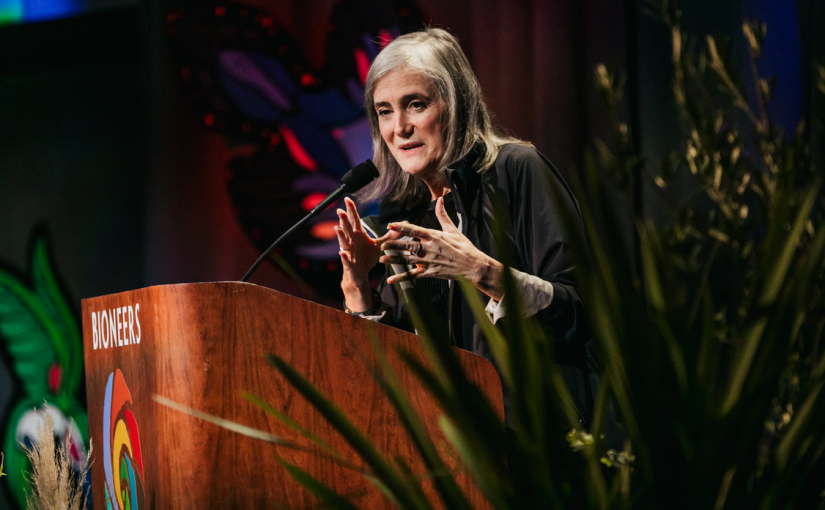How do we create peace? What can we learn from indigenous societies who have addressed this profound question over thousands of years? From North America to the Kalahari, Jeannette Armstrong, Marlowe Sam, Evan Pritchard, Kxao=Oma and Megan Biesele share powerful stories of how indigenous social technologies have succeeded in resolving conflict, and still are.
Value Change for Survival: All My Relations | Chief Oren Lyons, Leslie Gray & John Mohawk
In these ecologically dangerous times, many call for a fundamental change of heart if we are to restore vital ecosystems. Oren Lyons, Leslie Gray and John Mohawk remind us of the values that sustained people for thousands of years in a balance that supported the land. They offer direction toward nothing less than a value change for survival.
Indigeneity: Becoming Native, Staying Native | Jeannette Armstrong, Leslie Gray, and Katsi Cook
What would life be like if we could hear the land ask us to be a certain way, a way that leads us and the Earth back to wholeness and health? Native American activists, educators, and leaders Jeannette Armstrong, Leslie Gray, and Katsi Cook share an inspiring Earth-honoring vision of what it means to “re-indigenize” ourselves.
Toxic Trespassing: The Inside Story of the Love Canal Uprising | Lois Gibbs
Few people know how a hostage-taking incident transformed a shy housewife from the working-class community near Niagara Falls into one of the founding mothers of the environmental justice movement. Spark-plug community organizer Lois Gibbs traces the electrifying arc that led from sick children to an international rallying cry for human rights. Because, says Gibbs, “It is just not right morally or ethically that somebody with a corporate interest, with a dollar interest, is making a decision each and every day in this country about who lives and who dies.”
A Fork in the Road: Make Friends with a Farmer | Michael Ableman
Local, organic food is growing in popularity by leaps and bounds. Beyond the benefits to the growers, our health and the land, could it become a matter of survival? Author and farmer Michael Ableman shares his cross-country journey celebrating the reverent reconnection with food and the land that is transforming how we will produce our food.
Find out more about Michael Ableman and how you can engage with his campaigns and efforts by visiting http://michaelableman.com/
The Trojan Gene: Genetic Engineering and the Future of Nature
A handful of profit-driven biotechnology corporations are rewriting the genetic code of the tree of life, radically altering the composition of our food and releasing self-replicating genetic pollution into the natural world. Farmer Percy Schmeiser, technology expert Andrew Kimbrell, and Native American professor and farmer John Mohawk explore the implications of genetic engineering on the food we eat, the farmers who raise our food, the natural world and society.
Find out more about Andrew Kimbrell and how you can engage with his organization’s campaigns and efforts by visiting the Center for Food Safety’s website.
Tree of Knowledge, Tree of Life: Toward an Agriculture of Relationships
Agriculture or industrial farming, as it is practiced today, may be the single most destructive human activity against the Earth that we currently employ. In response, a movement toward Restorative Farming that looks to nature for its direction is gaining momentum. The hunger for organic foods has never been greater. Millions of consumers are creating the demand that supports farm biodiversity and a healthy food supply. This radio show features Joel Salatin and Fred Kirschenmann, and author Wes Jackson.
On the Ground of Democracy: The Second American Revolution
Genetically engineered plants. Big box stores. Social-security privatization. Animal factory farms. Attorney Thomas Linzey says that the force behind all of these is corporations. With his help, the unlikeliest people in the unlikeliest of places are successfully challenging corporate authority, re-writing the laws of the land and reclaiming democracy and their environment.
Intelligence in Nature: Coming Full Circle | Jeremy Narby
What do octopuses, bees, plants and slime molds have in common with human beings? For one thing, they exhibit the ability to solve problems and make decisions. Author and anthropologist Jeremy Narby reveals his astonishing research on the profound intelligence active throughout nature. After all, how could people be intelligent if the nature that created us were not even more intelligent?
Explore our Visionary Plant Consciousness & Psychedelics media collection >>
Unembedding the Media: Going Where the Silence Is | Thom Hartmann And Amy Goodman
Today, a mere six corporations control over 70 percent of the world’s media. Journalist and radio broadcaster Thom Hartmann reminds us that until recently the media were part of the commons, protected by government for the public good. Executive producer and host of Democracy Now! Amy Goodman says that how the media uses the public airwaves is up to us.
Nature Heals All Wounds: Spirals, Seashells and Molecular Architecture | Jay Harman & Paul Anastas
In the burgeoning field of biomimicry, bioneers are designing a technological civilization that harmonizes with nature’s operating instructions. Inventor Jay Harman models the forms and dynamics of water with astounding results. Chemist Paul Anastas is re-inventing a “Green Chemistry” that transforms how we make things. Imitating nature is paying off for the economy, people and the planet.
Why the Wild? Wilderness in the Anthropocene
In an era of climate change and sprawling human development, how can we conserve, manage and/or restore wilderness at scale? And what does “wilderness” mean in an epoch almost completely dominated by human activity? What role do wild places play, practically and spiritually?
Hosted by Jason Mark, Editor of the Sierra Magazine. With: Bruce Hamilton, Deputy Executive Director of the Sierra Club; Richard White, Professor of Environmental History at Stanford; Rue Mapp, award-winning founder of Outdoor Afro.
Recorded Friday, October 16, 2015 at the National Bioneers Conference in San Rafael, California.

